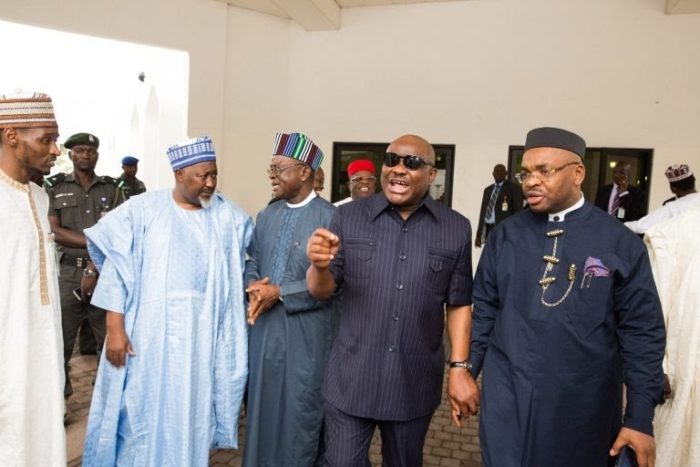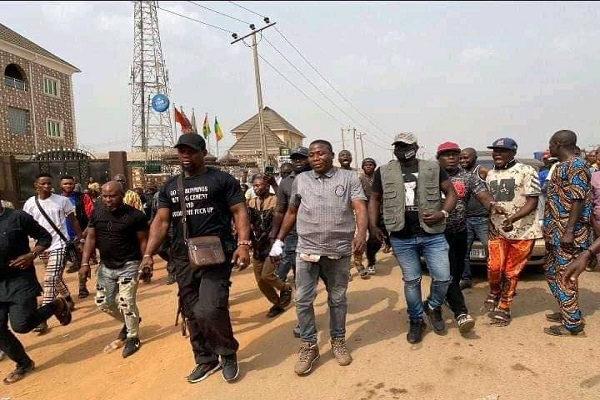The Indigenous People Of Biafra (IPOB) has extended its travel ban to Nigerian state governors owing workers’ salaries.
This is coming after the proscribed group banned political leaders from the South-East region from stepping their foots outside the country.
Nnamdi Kanu, leader of the secessionist group gave the order while speaking with Ben TV recently.
The ban came after a former deputy Senate President, Ike Ekweremadu, was assaulted by suspected members of the outlawed group in Germany.
A serving Senator, Enyinnanya Abaribe and Imo State governor, Emeka Ihedioha, were excluded from the ban.
Extending the group’s campaign for the restoration of the defunct Biafra Republic, Mr Kanu said his group will now go after state governors who have refused to pay workers their wages.
“Very soon, any governor who has not paid salaries will not come abroad anymore. If you owe salaries you’re not allowed to go abroad anymore,” the secessionist leader who is fugitive charged with treason said.
“You bank teachers’ salaries, you bank the salaries of pensioners, you cannot come abroad anymore.
“So this is just the beginning. “We’ll not attack them. We’ll just ask them questions. It is called picketing. It’s allowed within the ambit of democratic rules.
“So, if we see you, we’ll ask you what you’ve been doing with teachers’ salaries, nurses’ salaries and why you’ve not been paying people and what are you doing here? “Any governor owing workers once we catch you abroad you’ll tell us what you’ve been doing with the salaries you’re supposed to pay.
“There’s no time on this earth that any process of agitation will be palatable for everyone or easy for everyone to buy into. When Nnamdi Azikiwe was campaigning for Nigeria to be free from colonial rule, he was sent to prison.
“Many people felt he was radical and declined to associate themselves with him. But in the end, he succeeded in freeing Nigeria not knowing that we are jumping from the frying pan to fire.
“Awolowo was the same thing. He was a firebrand. Many people didn’t like his approach from the beginning, but on reflection and review of what he did and how he managed to accomplish them, people have come to understand that he meant well for his people.
“So, now that these things are happening, most people would not appreciate it, but I’m sure that in many years to come, historians will look back to what’s happening today,” he added.












